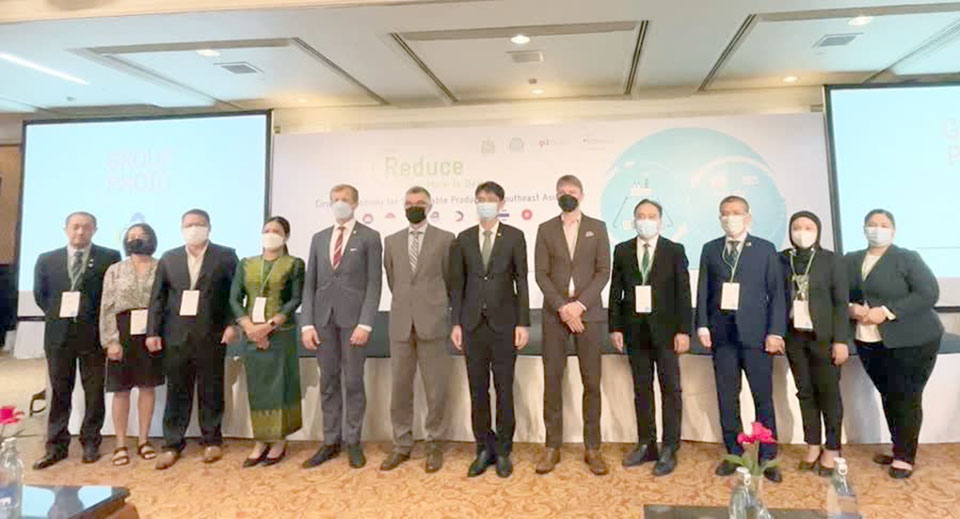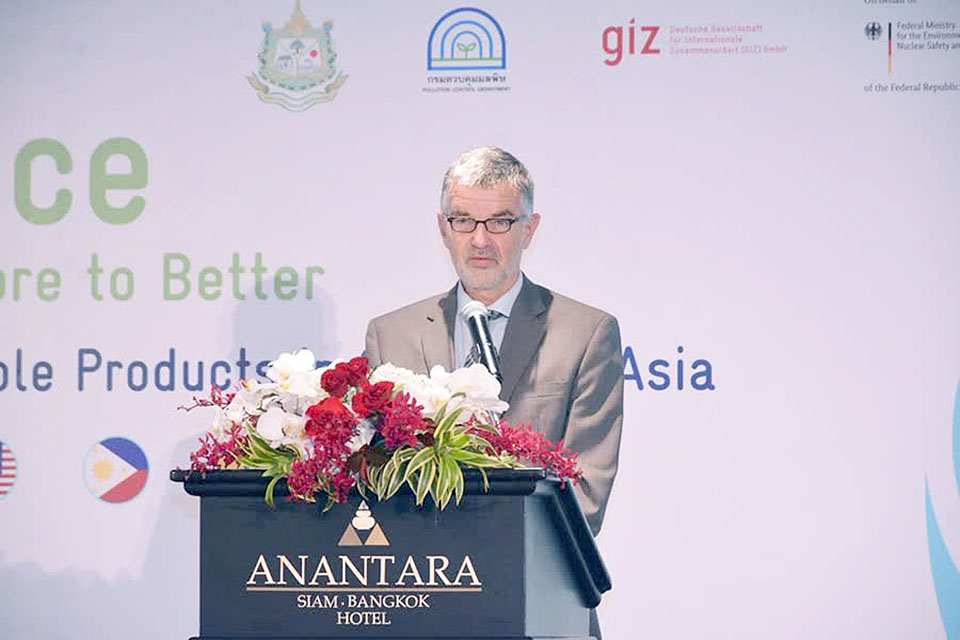
Thailand is now hosting a regional meeting focused on shelf life extension of products, and the use of eco-friendly items. This meeting aims to promote the bio and circular economy while minimizing waste.
The Ministry of Natural Resources and Environment (MNRE) has joined hands with the German International Cooperation (GIZ) Bangkok Office to organize a regional meeting on the theme Reduce! – From More to Better. Delegates from several countries participated in the opening ceremony.
In a special remark delivered at this event, Mr. Pinsak Suraswadi, Deputy Director General of Natural Resources and Environment, said Thailand is in the process of capitalizing on its biodiversity and local cultures with its economic and social development plan.
This new approach will promote the use of the country’s biodiversity and cultures as ingredients for new products, in ways that yield the highest value and efficiency, based on the BCG Model.

Mr. Pinsak said the ministry now aims to maximize the efficiency of natural resources utilization, achieve the highest value, reduce waste, and reduce resource consumption by two-thirds of the current quantity.
The MNRE has a goal to reduce waste by 16.5 million tons, while focusing on climate actions. The ministry’s plan will be particularly focused on the plastics industry, ICT, garment, textiles, and construction industries.
Mr. Janejob Suksod, Director of the Environmental Analysis Center, said this meeting has a goal to turn cities into low-carbon cities, as Thailand is considered a leader of the ASEAN region in this regard.
He said half of government offices in Thailand utilize eco-friendly products, while the government is pushing for private firms to follow suit.
The Thai government has set a target to achieve carbon neutrality by 2050 and achieve net-zero emissions by 2065. (NNT)

 |
 |
 |





